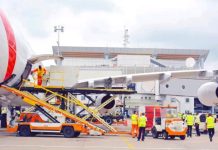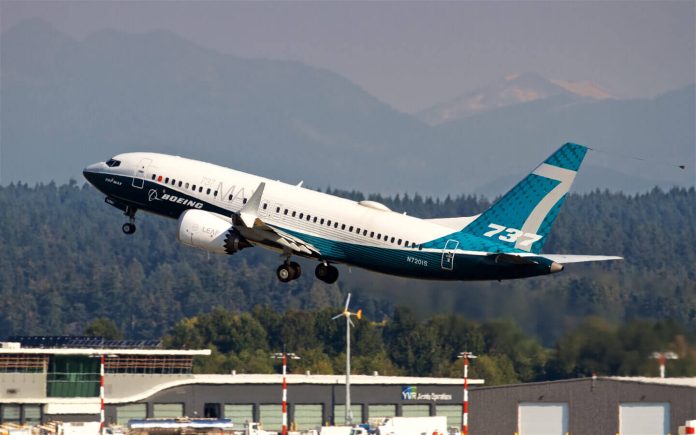Boeing reported first-quarter 2025 revenue of $19.5 billion, reflecting an 18% increase year-over-year, driven by improved commercial aircraft deliveries and operational execution. The company posted a GAAP loss per share of ($0.16) and a core loss per share of ($0.49), outperforming analyst expectations of a $1.29 per share loss. Free cash flow stood at ($2.3) billion, an improvement from nearly $4 billion used in the first quarter of 2024, while operating cash flow was reported at ($1.6) billion. Boeing ended the quarter with $23.7 billion in cash and marketable securities, down from $26.3 billion at the start of the quarter, and reduced its debt slightly to $53.6 billion.
The Commercial Airplanes segment generated $8.1 billion in revenue, a 75% increase compared to the same period last year, with deliveries rising to 130 aircraft from 83. Boeing recorded 221 net orders during the quarter, including 20 777-9s and 20 787-10s for Korean Air, and 50 737-8s for BOC Aviation. The segment’s operating margin was negative 6.6%, largely due to ongoing costs and production ramp-ups. The 737 Max program increased output and is expected to reach 38 jets per month in 2025, pending Federal Aviation Administration approval. Boeing plans to increase production in five-jet monthly increments thereafter, up to 52 per month, with at least six months between each step. The 787 program remained steady at five aircraft per month and is expected to rise to seven later this year. FAA flight certification testing began for the 777X, with first delivery still expected in 2026.
Boeing indicated it may reallocate aircraft originally intended for China to other customers due to delivery disruptions linked to the ongoing trade dispute between the U.S. and China. Boeing’s commercial airplane backlog stood at over 5,600 aircraft, valued at $460 billion, contributing to the total company backlog of $545 billion.
In its Defense, Space & Security unit, Boeing reported revenue of $6.3 billion, down 9% from a year earlier, with an operating margin of 2.5%. The company secured a significant new contract to design and produce the F-47, a next-generation fighter jet for the U.S. Air Force. The contract is not yet reflected in the division’s $62 billion backlog, pending final review.
Global Services revenue totaled $5.1 billion in the first quarter, supported by favorable performance mix and strong aftermarket demand. Operating margin for the unit reached 18.6%. During the quarter, Boeing delivered the 100th 767-300 Boeing Converted Freighter and received a contract from the U.S. Air Force to integrate electronic warfare systems into the F-15 Eagle.
Boeing also announced the sale of parts of its Digital Aviation Solutions business, including the Jeppesen navigation unit, to private equity firm Thoma Bravo for $10.55 billion in cash. The deal is expected to close by the end of 2025, subject to regulatory approval and customary closing conditions.
Despite ongoing challenges, including tariff impacts and the aftermath of the January 2024 737 Max incident, Boeing leadership emphasized steady progress in safety, production, and strategic focus. The company expects to generate positive cash flow in the second half of 2025 and continues to execute on its long-term recovery plan. Boeing shares rose 6% to $172.37 following the earnings release.













